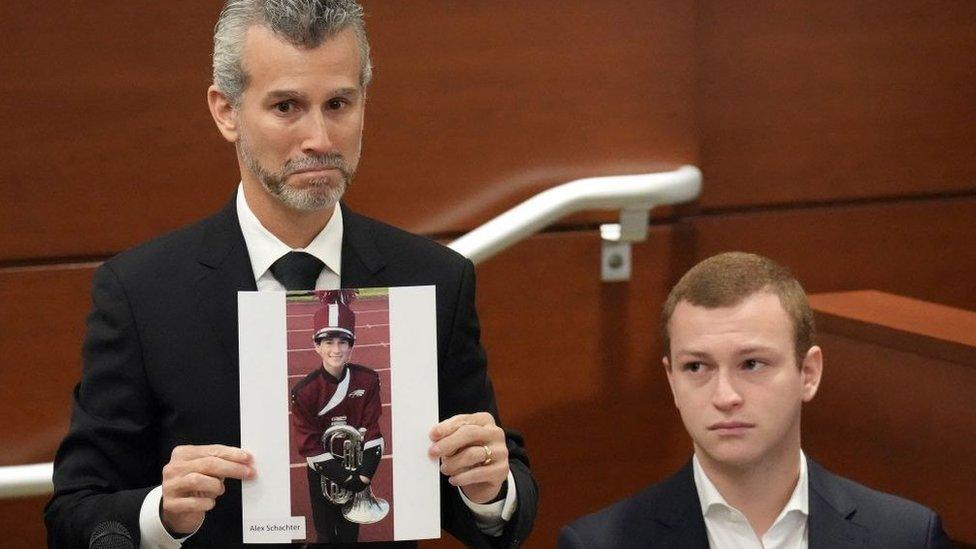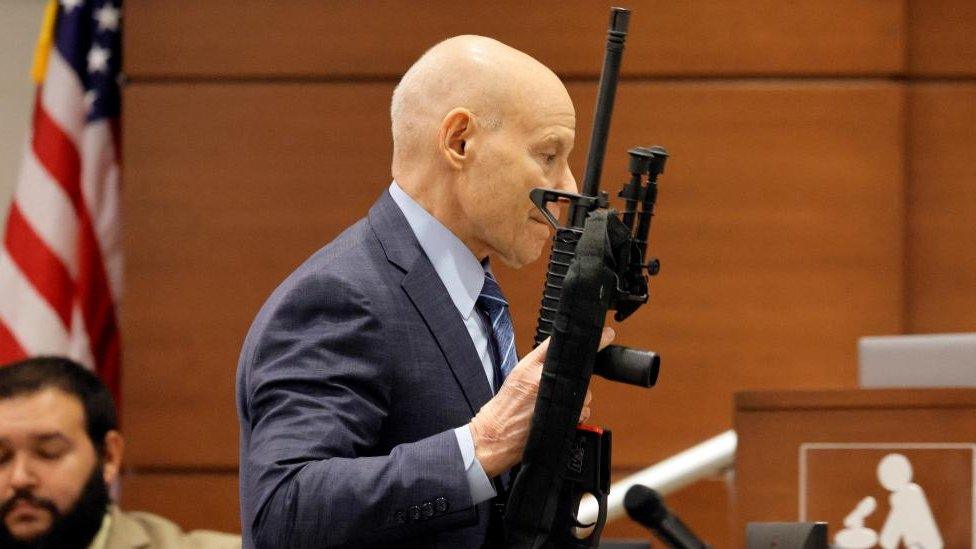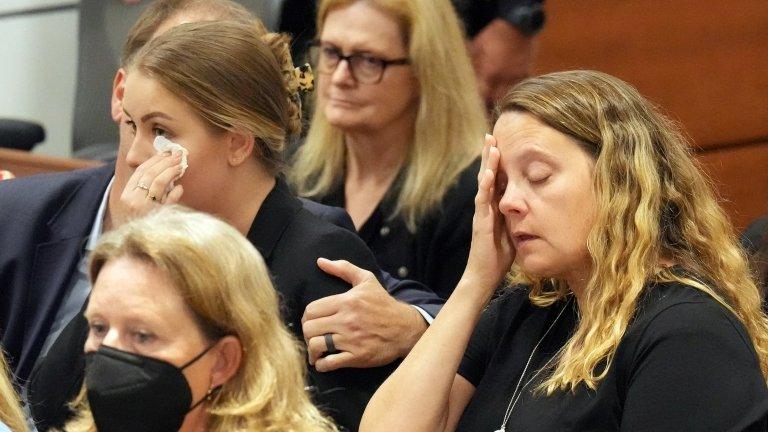Parkland shooting: Jury deliberating on sentencing
- Published

Max Schachter holds a photo of his son, Alex, who died in the shooting
A jury has concluded its first day of deliberations on the fate of the gunman responsible for a school shooting in Parkland, Florida.
Nikolas Cruz pleaded guilty in October last year to 17 counts of murder and attempted murder in the 14 February 2018 attack.
The jury will decide whether the 24-year-old should be sentenced to death or life in prison without parole.
The case is the deadliest mass shooting to reach a jury trial in the US.
Broward County Circuit Judge Elizabeth Scherer delivered instructions to the jury on Wednesday morning before they were sequestered for deliberations. Survivors of the shooting were also in court.
She told the 12 jurors that "a human life is at stake".
On Wednesday afternoon the jurors asked to again see the AR-15 rifle used in the attack. They also want to see one of the ammunition magazines, which had a swastika etched on to its side.
Sheriff's officials did not want the weapon to be left in the jury room overnight for safety reasons, so the judge said they would take up the matter on Thursday morning.
During the trial, which began in July, prosecutors argued the gunman planned a "systematic massacre" of 14 students and three staff members at Parkland, and that he should be sentenced to death.
They said he had conducted internet research before the attack and posted online comments in which he vowed to show "no mercy".
"What he wanted to do, what his plan was, and what he did, was to murder children at school and their caretakers," assistant state attorney Michael Satz said.
The gunman's defence lawyer Melisa McNeill has argued that her client was brain damaged in the womb by his mother's alcohol and substance abuse during pregnancy.
McNeill added a death sentence "would change nothing" and "not bring back" the victims.
The court also heard statements from families of those who were killed.
The death penalty exists in 27 US states, including Florida. The annual number of executions in the US, however, has fallen over the decades, from 98 in 1999 to just 11 in 2021.
Under Florida state law, prosecutors can seek the death penalty in cases when the accused has been convicted of first-degree murder with aggravating factors - murders that are "especially heinous, atrocious or cruel", creating "a risk of death to many persons" and "cold, calculated" murders that were premeditated.
In most US criminal cases, a jury decides culpability and the judge decides on the punishment. In this case, however, the jury will decide how the gunman is sentenced.
The jury's seven men and five women must agree unanimously to recommend the death penalty.
The last person to be executed in Florida was 57-year-old Gary Ray Bowles in 2019. He was put to death for the murder of six men in 1994.
Related topics
- Published11 October 2022

- Published23 August 2022
